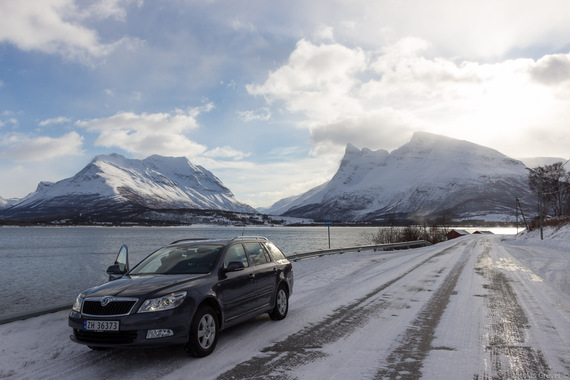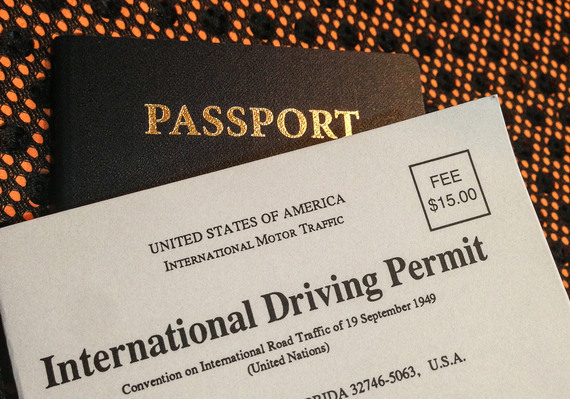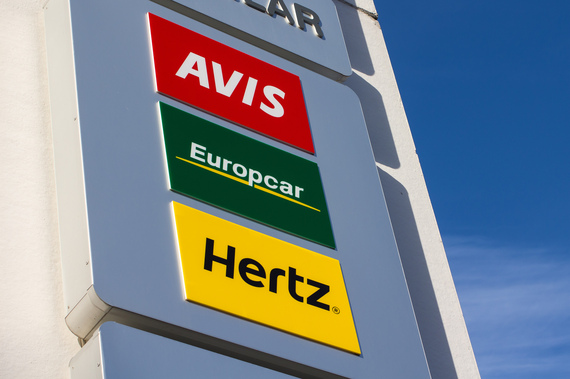By: Tim Ebner

Credit: Flickr/Nicolas Grevet
Renting a car is usually pretty easy. In fact, these days travelers often bypass the customer service counter altogether and just hop in a car and go (although they'd be wise to keep in mind these secrets the rental car companies don't want them to know).
But renting a car abroad is a different story. Depending on your destination, there are a number of key questions to consider: do I need an international driving permit? What are the rules of the road? Do I have accident protection or coverage?
It may take some extra legwork, but renting a car overseas can be a fun way to explore a new country, particularly for those who prefer to take the route less traveled. Before you do, though, here are a few tips to make your foreign car rental as hassle-free as possible.

Credit: Flickr/Tony Webster
Find out if you need an international driving permit
The first step is determining whether or not the country that you're visiting requires an international driving permit. Show up without one and you could get turned around at the rental counter. And, since no two countries are the same when it comes to driving laws, the US State Department suggests checking with your country's embassy before you go.
Fortunately, obtaining an international driving permit is pretty easy, but it does require some time -- approximately four to six weeks -- to process. There are two travel organizations, AAA and National Automobile Club, that license international drivers. You'll have to supply two passport-style photos, fill out an application, and pay a small fee, and once issued, the permit is valid for up to a full year. Just remember, a permit does not replace your government-issued driver's license, so be sure to carry your passport and driver's license at all times.
Learn the rules of the road
Every country has its own driving rules so it's smart to do some basic homework on your destination before you ever climb behind the wheel -- especially if said wheel is on the wrong side of the car.
In many countries, you'll need to know how to drive a manual transmission (or be prepared to pay a premium for an automatic vehicle), and in some cases -- like England or Ireland -- how to drive on the opposite side of the road. The way people drive can also vary depending upon the location. For instance, in Brazil's traffic-choked São Paulo, drivers are notoriously aggressive. Meanwhile, in desolate parts of Argentina's Patagonia, you'll have the road all to yourself; which is nice until you realize you haven't seen a gas station in hours and your empty-tank light just turned on. And speaking of gas, don't forget that it's A LOT more expensive in other countries. The website GlobalPetrolPrices.com can provide a quick price check on country fuel prices (listed in US dollars by liter) so you can devise a budget before you leave.

Credit: Flickr/Håkan Dahlström
Compare rates between US and local agencies
US rental car agencies like Hertz, Enterprise, and Avis are convenient and operate in many different countries abroad, but their rates are often more expensive than local or national agencies. Be sure to compare rates online through sites like Kayak or Expedia. Also, be aware of holiday and other peak tourist-season pricing.
There are a few ways to save money when renting abroad: first, specialty pricing may be offered through your airline or a travel membership programs, like AAA. Second, If you have some flexibility in your travel schedule, it's not uncommon for local agencies to offer walk-in service for short-term and weekend car rentals. It may pay to wait until you arrive to book. And finally, thanks to the sharing economy, there are a number of popular trip and rideshare options in Europe, including BlaBlaCar and Liftshare.
More from Thrillist:
Like Thrillist on Facebook: www.facebook.com/Thrillist